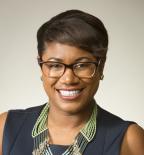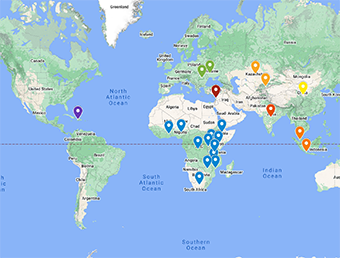

- Associate Professor, Psychology Department, Kalamazoo College
- Former Fellow, Research Education Institute for Diverse Scholars (REIDS)
Biography:
I have a broad background in developmental psychology, and have benefitted from specific training in sexuality, substance use, and socialization. In my graduate work, I examined the role of sexual socialization in sexual behavior and risk-taking in both African American adolescents and young adults. As a postdoctoral fellow at the University of Michigan Substance Abuse Research Center, I investigated substance use as it occurs in the context of romantic relationships. In my previous and current research projects, I have employed both qualitative and quantitative methodology, with specific experience in survey design and daily process approaches. As part of the NIMH-funded R25 Research Education Institute for Diverse Scholars (REIDS) program, I was trained to conduct community-based participatory research; through this lens, I consider the sociocultural context of health and decision-making.
The majority of the literature investigating sexual behavior in adolescents and young adults has focused mainly on understanding the factors leading to risky sexual outcomes. As such, efforts have largely centered on understanding the role of several variables: demographic factors (e.g., SES and family structure), self-concept factors (e.g., self-esteem and personal future orientation), and sexual knowledge and communication. Regarding communication, one of the more commonly studied aspects is parental communication about sexuality, with the assumption being that the more parents communicate with their children about sex, the fewer risks these children will take. However, I argue that this typical approach to understanding the predictors of risk provides only a limited perspective of sexual development. Specifically, because the existing literature has focused on the quantity of sexual communication received from parents, it underestimates the role of peers and intimate partners, and offers a limited assessment of the content of the messages received by the source. In addition, analyses of the sexual behaviors affected by this communication have been narrow, focusing mainly on coital initiation rather than a more inclusive definition of sexual activity, such as subjective sexual assessment. I argue that considering both sides of the "coin" will be essential in our understanding of the broader nature of sexuality.
Across all of my research projects, I have actively involved undergraduates as research assistants. I have found that research provides students with an opportunity to think analytically and to begin to conceptualize themselves as empirical scholars. I set realistically high expectations for my students' contributions to our collaborative research lab, involving them im activities such as qualitative and quantitative data collection, data cleaning, statistical analysis, scientific meeting presentation and manuscript preparation.
My work ultimately aims to employ my underrepresented voice and perspective in contributing to the current gaps in the field's understanding of the most effective and efficient theory and community-based intervention strategies in healthy sexual outcomes and HIV/AIDS prevention.


